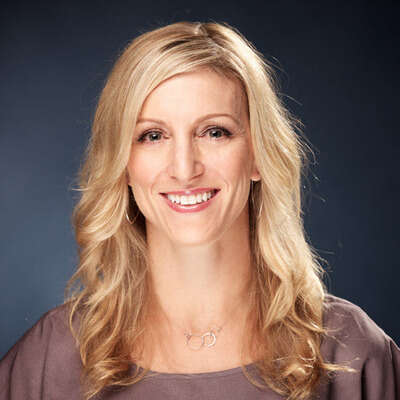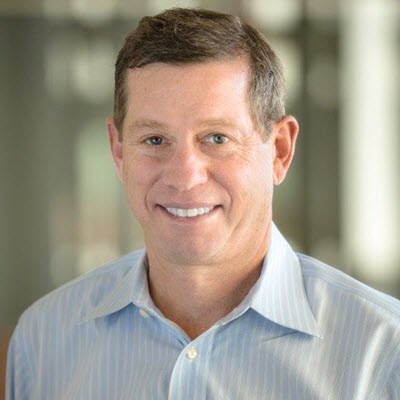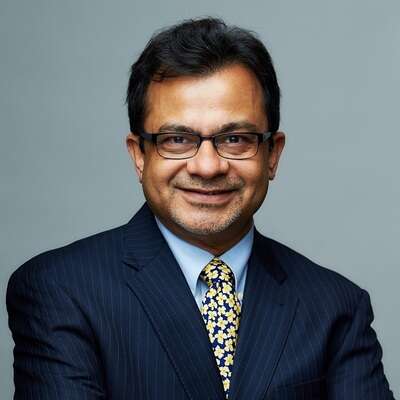The social media giant’s VP of Human Resources shares insights into Facebook’s unique approach to talent development, HR, and the importance of a transparent culture.
Boyden’s Leadership Series presents discussions with business and thought leaders from organizations across the globe. The series focuses on topical issues that offer executives, political leaders and the media insight into current trends in business and talent management in the global marketplace.
This issue features Janelle Gale, Vice President of Human Resources at Facebook. In the interview, she shares insights on her own recruitment to the role, Facebook’s unique approach to HR practices, the importance of an open and transparent culture, and how her involvement in an entrepreneurial charity in rural Pakistan has affected her perspective on Silicon Valley.
In her current role, Janelle leads a team that partners with the business to grow and engage Facebook’s 17,000+ employees across more than 50 offices in 30 countries, evolves the organizational design, and creates and implements people programs while ensuring the scalability of Facebook’s culture. She is responsible for the HR Business Partner, Diversity, Talent Management, and Operations functions.
Prior to Facebook, Janelle spent nine years at Levi Strauss & Company, where she held a variety of HR roles including organizational and leadership development, HR Business Partner, and head of Human Resources for the Levi’s apparel brand. Earlier in her career, Janelle was a principal consultant at IBM Business Consulting Services in the organization and change practice.
Janelle currently serves on the board of Sughar Foundation, a nonprofit organization focused on teaching life, business, and entrepreneurial skills to women and girls in rural Pakistan. She received a bachelor’s degree from the University of Southern California, and holds a Ph.D. in Organizational Psychology from the California School of Professional Psychology.
Boyden: How does your role at Facebook compare with your expectations of it when you joined the company four years ago?
Gale: In a good way, pretty much everything about Facebook has been surprising. First, the level of transparency we have is pretty remarkable relative to many organizations I’ve worked with. A lot of this is based on the product itself, which is about creating openness and connection in the world, and that really culturally emanates for us.
A good example of this transparency is that Mark Zuckerberg leads a weekly Q&A for employees, where no topic is out of bounds. The second thing I would highlight is the use of the Facebook product internally. We now have a product externally called Workplace by Facebook, which is essentially Facebook for businesses – and we are huge users.
For companies that really want to empower their people to participate and communicate, Workplace enables that two-way conversation. For me, it really democratizes employee culture and gives people a voice, so anyone from our first-year interns upwards can engage in any group discussion.
Third, the amount of support that I had from my team was so much higher than I expected. Their level of investment in me coming into Facebook was exceptional. I had 40 friend requests from my team before I had even arrived, and these personal connections with the people you work with are incredibly helpful in accelerating progress in your work life together.
Wharton Professor Adam Grant, with whom I co-authored a recent Harvard Business Review article, remarked on Facebook’s culture of giving. He said Facebook has the highest percentage of “givers” he’s seen in a leadership team. This speaks to a focus on other people and investment in the greater good. This was evident to me from the early days when I started here.
Boyden: How were you recruited to Facebook?
Gale: I was referred by our head of brand marketing, who was a former colleague of mine. She sent an email and within 24 hours my current boss, Lori [Goler, Facebook’s Head of People], got in contact to set up a time to meet. It was very fast moving.
My recruitment process really reflected Facebook’s overall approach, in that we look for people who are “builders.” These are people who believe there’s always room for improvement.
My personal philosophy is inspired by Dieter Rams, former head of industrial design at Braun Electronics, who said “Question everything generally thought to be obvious.” This is really the way I run HR and my manager recognized that.
Boyden: How have your earlier roles at established tech and consumer companies like IBM and Levi Strauss been beneficial to your current role?
Gale: Retail is very fast moving and people are very fickle in their preferences. As a result, you have to move fast as a company to keep up with preferences, not dissimilar to tech. Certainly for Facebook, we want to deeply understand people, their interests, and what’s driving their behavior. That same intense focus on the consumer is common to both industries.
The major difference is that tech is in a position to iterate more quickly and more efficiently than retail, so it’s been nice to be able to iterate and learn from something – try it, and if it doesn’t work, try something else. It ultimately means you can operate with less risk.
Boyden: Facebook is a rapidly evolving company with big changes always afoot, like product launches and acquisitions. How does this affect your approach to recruiting?
Gale: As we look at the technology challenges ahead of us that are unique to Facebook, we have to recruit for the future, so we’re hiring people who are deep experts in their field, cutting-edge technology, and sciences or designs that are new and interesting.
We also hire amazing learners: people who demonstrate an ability to outpace others in their learning. In April 2016, Mark [Zuckerberg] shared Facebook’s long-term technical roadmap. We must be fast learners to keep up with and stay ahead of where the trends are going. Looking to the future, it’s about hiring for expertise and for learning.
Boyden: How does Facebook’s approach to leadership differ from other companies?
Gale: There is a lack of hierarchy, which is why we don’t use titles. We also don’t use org charts, because we believe hierarchy gets in the way of good ideas, and that’s a really important principle for us. Mark is such a mission-driven leader, and that emanates throughout the whole company.
As a company scales to 15,000 employees, for example, that personal connection to the mission is so easily lost. We ask that all managers be the translation layer for our people – to make sure they feel that connection. We encourage our leaders to tell stories about their own connection to the mission. They share their stories with an amazing amount of transparency and vulnerability, and that creates a deep connection and personalizes our mission to those they manage.
Boyden: In today’s age of Facebook and LinkedIn, where does an executive search firm make the biggest difference?
Gale: At Facebook, we invested in executive recruiting within our own function. But for highly niche roles that require a mix of previous experience, we would consider a firm that has a track record of expertise in those types of roles.
Our philosophy when we look for a search firm is not simply to move the work externally, because we have people inside to do the work, but to work with a firm that has a deep understanding of the talent and the specific niche and markets. We leverage firms that have a robust network of talent and can really educate us on the market for specific, specialized roles.
Boyden: What are some of the interesting ways Facebook is using advanced analytics to support the human resource function?
Gale: We measure absolutely everything. Mark runs the company by the scientific method, and that includes HR. It’s completely expected of our function in addition to all of the company’s technical functions.
We regularly review our operational metrics as well as conduct longer-term research projects. We want to understand what’s unique about our employees’ experience at Facebook, and what drives them. Our research focus includes all the company, manager, and job-related factors that influence someone’s engagement and performance.
Boyden: What else makes Facebook’s HR practices unique?
Gale: Our challenge is to create a personal experience while scaling the company rapidly. We have a philosophy in HR that we call “personalization at scale,” because we’re finding that people coming into the workforce are used to having highly personalized information.
One way we practice this is through a relentless focus on strengths, which for us means we want people in jobs they enjoy and are good at – and we measure it. We ask people what percentage of time they do work they enjoy, and if this dips below 70 percent, they start to get into a red zone. We do a lot to ensure they’re doing work they love.
Also, while we typically hire for specific jobs, we hire most of our technical folks into a general pool to give them exposure to every aspect of our different products. This allows them to make better decisions about which part of the company to work in.
We have a unique six-week training program attended by our CTO, which gives real perspective on how we run the company from a technical standpoint. Once new hires have attended this, they get to choose where they want to go, based on what is meaningful and interesting to them, but also where Facebook needs them.
Boyden: How has your involvement with the Sughar Foundation, which helps women in Pakistan learn entrepreneurial skills, affected your perspective in Silicon Valley?
Gale: It’s been eye-opening in so many ways. The experience put me in touch with a mission-led organization where I feel like I’m doing my small part to help women in some of the hardest-to-reach places.
Sughar Foundation was created by a remarkable Pakistani woman named Khalida Brohi, who I met through a friend. She set up the organization as a result of her cousin’s having been killed in an honor killing by her relatives, which is much more common than reported in rural Pakistan. The focus on women’s empowerment is really rooted in the end goal of freeing women from domestic violence.
The Sughar Foundation and Facebook are connected by their shared focus on small businesses. Small businesses are the backbone of our economy. In a world where many can’t afford the infrastructure of a regular IT system, the fact that Facebook allows them to run on a mobile platform anywhere in the world is very compelling.
We would like to thank Daniel Grassi, Managing Partner of Boyden United States, for making this edition of Boyden’s Leadership Series possible. For Mr. Grassi’s insight into the rise of social media and trends in related talent development, please continue to the Boyden View section.
The views and opinions expressed here do not necessarily represent the views of Boyden; only those of Janelle Gale.





